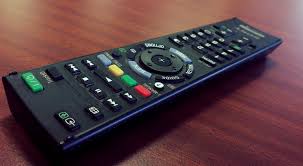
止めようと思っても止められない習慣。止められない理由のひとつは、いくつかの行動
を選べる時に、人は、一番簡単な選択肢を選ぶ傾向があるからだと言います。例えば、
家にいる時に何かを学ぶ時間を作りたいのに、ついついテレビを見て時間を浪費して
しまうのは、テレビを見るという行動が一番簡単でラク(リモコンのボタンを押す
だけ)だから。そこで、テレビを見るまでに20秒かかるようにする「20秒ルール」を
採用したら?――著者自身による実験の詳細を、バイリンガルで、どうぞ。
I took the batteries out of the remote control, took my stop watch, and walk the batteries
exactly 20 seconds away and left them in a drawer in my bedroom. Would that be
enough to cure me of my TV habit?
まず、テレビのリモコンから電池を抜き取った。それからストップウォッチを使って、
ソファから歩いてちょうど20秒かかる場所を探し、電池をベッドルームの引き出しの中
にしまった。だが、こんなことでテレビ中毒が治るのだろうか。
The next few nights when I got home from work, I plopped down on the couch and
pressed the “on” button on the remote――usually repeatedly――forgetting that I had
moved the batteries. Then, frustrated, I thought to myself, “I hate that I do these
experiments.” But sure enough, the energy and effort required to retrieve the
batteries――or even to walk across the room and turn the TV on manually――was
enough to do the trick.
その後の二、三日間、仕事から帰ると私はソファに座り、リモコンのボタンを何度も
押した。電池を取り外したことを忘れているのである。それからイライラして、
「まったくこんな実験をするんじゃなかった」と思う。しかし、わざわざベッドルーム
まで行って電池を取ってくるのは面倒でその気力もなく、テレビのところに行って手動
で電源を入れることすら面倒だった。
Soon I found myself reaching for a book I had purposefully placed on the couch, or the
guitar that now sat on a stand right by the couch, or even the laptop, now positioned in
easy reach, on which I was writing this manuscript. As the days passed, the urge to
watch TV waned, and the new activities became more habitual, like going out to play
pickup basketball or meeting friends for dinner. And I felt much more energized,
productive, and happy for it.
そのうち、わざとソファに置いておいた本に手を伸ばしたり、目の前にあるギターを
弾いたり、手近なところに置いておいたノートパソコン(原稿はこれで書いていた)を
取り上げるようになった。日がたつにつれ、テレビを見たいという衝動はだんだん
静まり、新しい行動が習慣になっていった。いままでテレビを見ていた時間に、
バスケットボールをしに出かけたり、友人を誘って食事に行ったりし始めたのである。
以前よりもずっと活力を感じるし、仕事もはかどり、気分がいい。
The 20-Second Rule is an especially crucial ally in our quest for healthier eating habits.
Researchers have found that they can cut cafeteria ice cream consumption in half by
simply closing the lid of an ice cream cooler. And that when people are required to wait
to another, separate line to purchase chips and candy, far fewer will do so.
健康的な食習慣を身につけたいと思う人にとっても、この「20秒ルール」は非常に役に
立つ。ある研究によれば、カフェテリアのアイスクリーム容器にふたをしておくだけ
で、消費が半分に減るという。また、ポテトチップスやキャンディを買おうとする人
に、別の専用の列に並ばなければならないと言うと、かなりの人が買うのをやめると
いう。
In essence, the more effort it takes us to obtain unhealthy food, the less we’ll eat of it,
and vice versa. This is why nutritionists recommend that we prepare healthy snacks in
advance so that we can simply pull them out of the refrigerator, and why they
recommend that when we do eat junk foods, we take out a small potion, then put the rest
of the bag away, well out of our reach.
つまり不健康な食品は、それを手に入れるのに努力が必要であればあるほど、食べなく
なる。またその逆もしかりである。だから栄養学者は、健康的なおやつが冷蔵庫から
手軽に取り出せるように、あらかじめ準備をしておくことを勧める。また、不健康な
スナックを食べるなら、まず少量取り出し、残りを手の届かないところに片づけて
しまうことを勧めている。

幸福優位7つの法則 仕事も人生も充実させるハーバード式最新成功理論
- 作者: ショーン・エイカー,高橋由紀子
- 出版社/メーカー: 徳間書店
- 発売日: 2011/08/27
- メディア: 単行本(ソフトカバー)
- 購入: 4人 クリック: 103回
- この商品を含むブログ (4件) を見る
■プライバシー・ポリシー
当ブログは、Amazon.co.jpを宣伝しリンクすることによってサイトが紹介料を獲得
できる手段を提供することを目的に設定されたアフィリエイト宣伝プログラムである、
Amazonアソシエイト・プログラムの参加者です。このプログラムにおいて、
第三者がコンテンツおよび宣伝を提供し、ユーザーからの情報を収集し、訪問者の
ブラウザーにクッキーを設定することがあります。プログラムにおいて情報の
扱いについてはAmazon.co.jpプライバシー規約をご確認ください。
Amazon.co.jp ヘルプ: Amazon.co.jp プライバシー規約

![The Happiness Advantage: The Seven Principles of Positive Psychology That Fuel Success and Performance at Work [Audiobook Unabridged] [Happiness Advantage Audiobook] Shawn Achor (Author Reader) The Happiness Advantage: The Seven Principles of Positive Psychology That Fuel Success and Performance at Work [Audiobook Unabridged] [Happiness Advantage Audiobook] Shawn Achor (Author Reader)](https://images-fe.ssl-images-amazon.com/images/I/41AYdyiUBNL._SL160_.jpg)